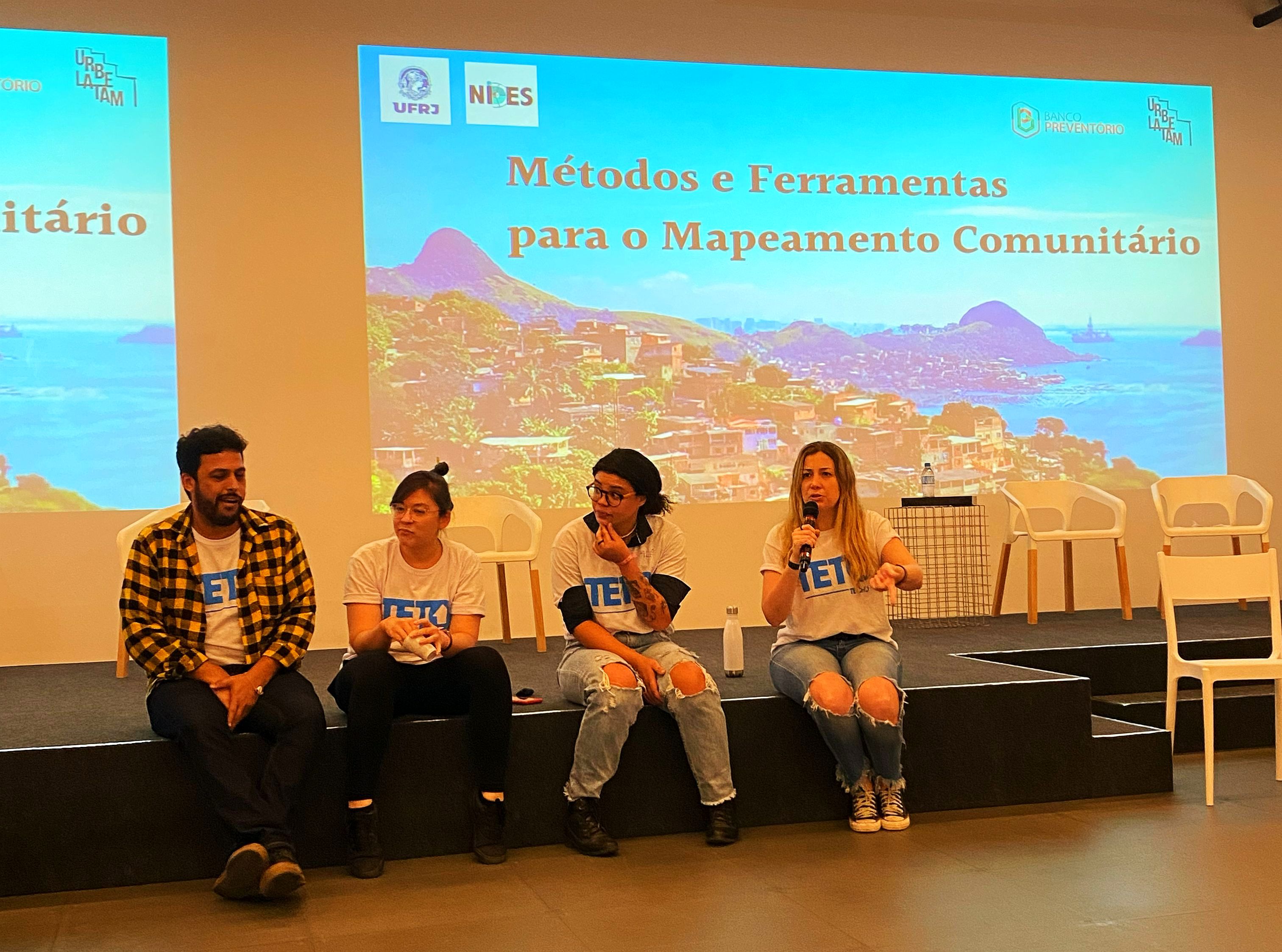News — 24 April, 2023
HOT and TETO: building emergency solutions to improve people’s lives

How a partnership in a local event in Brazil led HOT and TETO to work together towards building concrete emergency solutions to improve the living conditions of communities in situations of precarity and poverty.
In 2022, HOT decided to invest and partner in local humanitarian open mapping events instead of holding its own annual summit. We called it unSummit and you can read more about it here. One of the organizations we partnered with was TETO Brasil.
TETO is a part of a larger international organization - TECHO, that is present in 18 Latin American countries - and has the goal to build a country more fair and without poverty, working directly in communities in situations of precarity and poverty through the joint work between volunteers and communities residents. HOT and TETO are exploring how to work together to build concrete emergency solutions to improve the living conditions of these communities nationally.
Last year, TETO decided to hold two events in one: their National Encounter of Volunteers (ENV - Encontro Nacional de Voluntários) and City in Focus (Cidade em Foco).
-
The ENV has the main goal to capacitate the organization’s volunteers, promote knowledge exchange between different head offices and establish spaces of construction of ideas between volunteers and community members.
-
City in Focus, by its turn, is an annual gathering with the intention of promoting debates and reflections around the right to the city. Since, 2021, from City in Focus, TETO has presented the Map of Rights, a civic and open tool that makes visible the violated rights in the favelas around Brazil.
HOT came together in making those two events happen in one in two ways:
-
support by providing sponsorship
-
bringing open mapping reflections to the table.
.jpg)
Partnering with TETO National Encounter of Volunteers and City of Rights as an unSummit event was different for us, exactly because at first there was no focus on open mapping activities or tools. At this time, we were in the first stages of our hub in Latin America and, as our name expresses it, we have as our main goal to dedicate our efforts to humanitarian action and community development. So we saw a huge opportunity in this new partnership, since TETO develops community centered projects in hundreds of favelas throughout Brazil, mobilizing thousands of volunteers every year.
During our talks with the organization’s leads, we understood that bringing the open mapping tools we use could make their work much deeper and open the possibility for improvement and new projects. To show how open mapping is so important in developing community centered humanitarian action, we brought to the event another group who already uses it here in Brazil - URBE Latam. They did the mapping of the Preventório community, in Niterói, Rio de Janeiro, and you can read more about it here.
So I - representing HOT - and Elena Veríssimo, Alessandra Figueiredo and Marcos Rodrigo Maciel Ferreira, from URBE Latam, joined the two day event that happened in November 2022, bringing together around 200 people from different regions of Brazil. We participated in the integration activities and discussion with community members, and made a presentation about open mapping and the mapping developed in Preventório in a space called TED TETO.
After our presentation - that happened twice in different sessions - we had a space for discussions and in both sessions community residents that were at the event and volunteers raised their hands to talk about how applying the open mapping tools and methods we showed would be so important and asked us to follow up after the event.
.heif.jpg)
Next steps…
Since the event last year, we have been having meetings with TETO to talk about bringing open mapping tools and methods to the organizations actions in the communities they work with. As TETO has many offices around Brazil, we decided to run a pilot project to see how it works and, from there, create a model that can be adjusted and replicated in different communities.
At this stage, we have been talking to the office in Rio de Janeiro and discussing the possibility of developing the mapping of one of the communities in the region as a starting point. Our gatherings have been happening biweekly and we had the chance to exchange so far about some of the projects we developed and supported in informal settlements and hear about some of TETO’s main actions in favelas in Rio de Janeiro. The next step is to choose one action and work together, applying open mapping.

